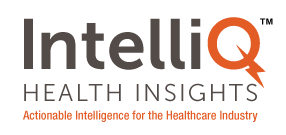Emerging Social Media Practices in Healthcare
by Robert Miller
Although the use of social media is well established in most consumer markets and especially retail and hospitality, the healthcare sector has been slower to adopt this new form of connecting and communicating with their customers. While the use of social networking sites grew from 5% of adults in 2005 to 50% of adults in 2011, according to the Pew Internet and American Life Project, a more recent Price Waterhouse Cooper (PwC) survey shows that only about one-third of consumers use social media for health-related matters.
Effective use of social media is yet another challenge for resource-constrained healthcare providers. Nevertheless, a growing number are recognizing the need to move forward and put the power of social media to work in order to drive revenue growth, cut costs, enhance patient relationships, improve quality of care, and achieve better outcomes. At last count more than 1,500 hospitals are participating in 6,379 social networking sites, according to Ed Bennett's Found in Cache blog.
In spite of concerns about inaccurate and misleading medical information being broadcast through social channels, patient privacy concerns and potential threats to reputations, providers recognize that "social business" is inevitable and that the benefits outweigh the negatives. In fact, other than "Stage 2 Meaningful Use" incentives considerations, an increasing number of healthcare organizations are taking steps to become active social media participants and enterprises to mitigate the risks associated with "ignoring" these concerns.
Benefits of Social Media Participation
Other than social media innovators and pioneers such as the Mayo Clinic and Kaiser Permanente, most providers lack the time, expertise and resources to achieve a proactive and participatory approach to social media. Most healthcare institutions are unable to deal with the "always-on," 2-way, near-real-time world of social media and the constant engagement, monitoring, moderating and content creation efforts required for success. Many are opting to use outside services and external expertise to pursue a more active role in social media.
I'd welcome your comments about social media practices in the healthcare industry. Also, for additional information about social media practices, a copy of the PwC report, and/or ways IntelliQ Health might be able to assist you with your social media initiatives, please contact us at Infohealth@IntelliQresearch.com.

